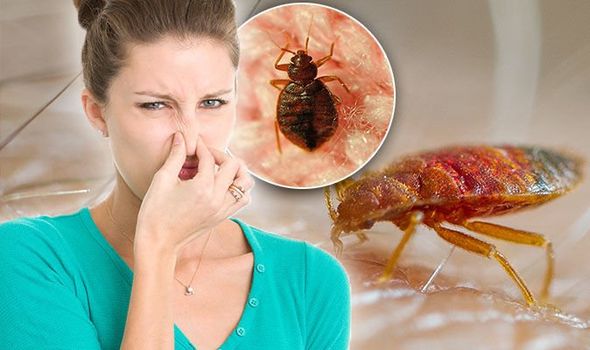Bed bugs are notorious pests that can cause sleepless nights and leave you with itchy, unpleasant bites. But did you know these tiny critters have a distinct smell?
Understanding the odor associated with bed bug infestations can be a crucial step in early detection and prevention. What does a bed bug smell like?
We explore the scientific reasoning behind the aroma, shedding light on the compounds responsible for the scent. We will also examine how this knowledge aids in pest control efforts.
From describing the scent to identifying its sources, this article aims to equip you with valuable information. Stay tuned as we unravel the mysteries while answering whether do bed bugs have an odor.

What Does a Bed Bug Smell Like?
Despite their small size, bed bugs emit a musty, sweet odor, often likened to a mix of moldy and fruity smells. This scent originates from their glands and can be noticeable in areas where bed bugs are present.
Detecting this distinct odor could signal a bed bug infestation in your home. Keeping an eye (or nose) out for this smell can help you catch and address bed bug problems early on.
Chemical composition of the bed bug odor
Bed bugs produce aldehydes, ketones, terpenes, and other compounds that give them a distinct odor. Aldehydes like hexanal and nonanal create a “green” or “grassy” smell. Ketones such as 2-heptanone also contribute to the odor profile.
Terpenes like α-pinene and limonene add “woody” and “citrusy” notes, potentially aiding in communication and defense. Other alcohols, esters, and aromatic compounds further complicate the multi-layered aroma, which can vary based on factors like age and sex.
Factors Influencing Bed Bug Odor
Environmental conditions, surface materials, and airflow can all affect the intensity and perception of bed bug odor. Temperature and humidity impact the volatility of the compounds they produce, with higher temps increasing the smell’s strength.
Porous surfaces like wood absorb and concentrate the odor, while non-porous ones allow it to dissipate more easily. Good ventilation dilutes the smell, while poor air circulation makes it more concentrated and noticeable.
Comparison With Other Odors
The bed bug odor differs from common household smells. It lacks the appetizing aroma of food and the sharp, chemical scent of cleaning products. Unlike body odors, the bed bug smell is more pungent and overwhelming.
The bed bug odor may share similarities with other insect-produced scents, having notes of grass, wood, or citrus, like some herbal or floral aromas. However, the bed bug smell is typically more intense and unpleasant, akin to the pungency of chemical odors like solvents.
Can You Detect Bed Bugs by Smell?
The distinct bed bug odor can be a helpful indicator of their presence, allowing experienced individuals to detect infestations by smell. This can be useful when visual inspection is difficult. Odor-based detection has advantages like early identification without specialized equipment.
However, relying solely on smell has limitations. The odor may be confused with other pests or household scents. Environmental factors like temperature and humidity can affect the odor’s intensity and detectability.
People also have varying sensitivities to the smell, leading to inconsistent and unreliable detection. The potential for false positives means smell alone is not as reliable as other identification methods.

Conclusion
Understanding what does a bed bug smell like can be a powerful tool in the battle against these persistent pests. This article has provided insights into the distinct odor associated with bed bug infestations, its sources, and the scientific explanations behind it.
With this information, you are now better equipped to identify potential infestations early on and start searching for how to get rid of bed bug smell. Early detection is crucial for effective pest management and preventing widespread infestations.
Hopefully, now you’re more prepared to tackle these unwanted guests proactively. Stay vigilant, and don’t let the smells go unnoticed!
